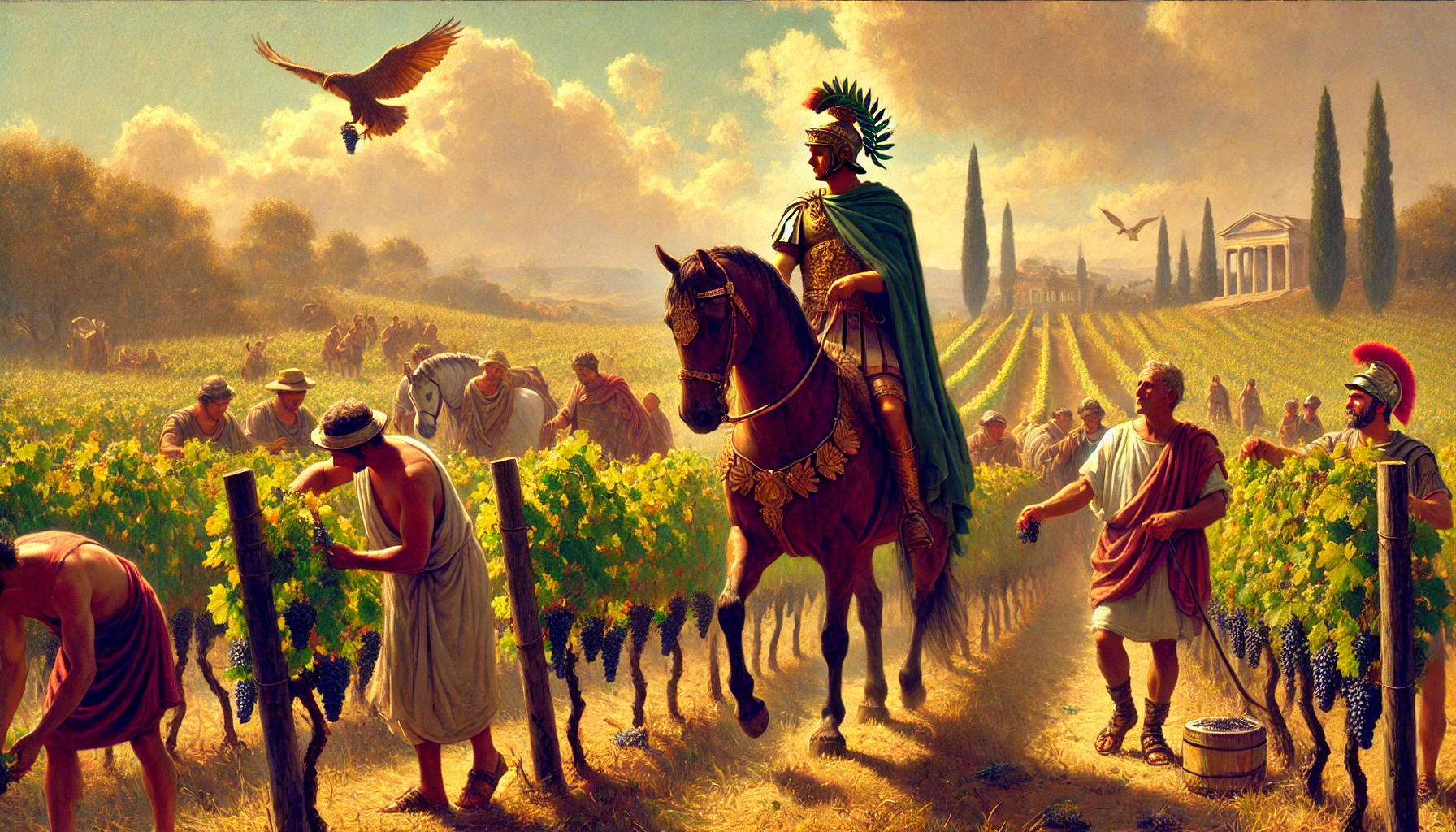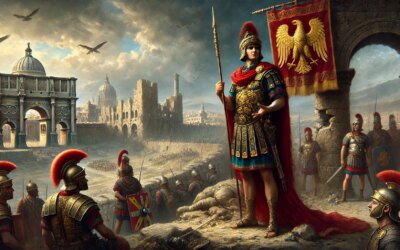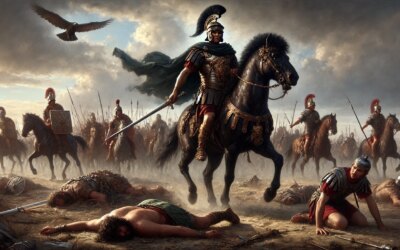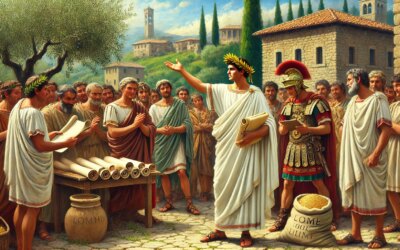Introduction: Grapes and Glory in a Time of Recovery
In the waning years of the third century AD, Rome faced internal unrest, economic strain, and relentless pressure from beyond its borders. Yet amid this chaos, Emperor Probus stood as an unlikely agent of renewal. Known as a soldier-emperor during the Crisis of the Third Century, Probus not only repelled invasions and quelled rebellions—he also planted vines. In 280 AD, in the heart of Gaul, Probus’s policies fostered agriculture, reestablishing stability not just with the sword, but with the sickle.
Probus: The Soldier-Turned-Statesman
Marcus Aurelius Probus was born in 232 AD in Sirmium, Pannonia. A career soldier of humble origin, he rose through the ranks for his discipline and leadership. After Emperor Tacitus’ death in 276 AD, the army proclaimed Probus emperor. He spent the next years battling Germanic tribes, suppressing usurpers, and fortifying the empire’s weakened borders.
The Crisis of the Third Century
Probus’s reign fell within a century of nearly continuous upheaval. Between 235 and 284 AD, Rome saw over two dozen emperors rise and fall, provinces secede, and barbarian incursions multiply. Inflation and plague further destabilized the realm. In this environment, emperors were often chosen by the army and survived only as long as they maintained military success and political support.
Gaul: From Warzone to Wine Country
Gaul, a vital Roman province, had suffered repeated invasions and internal disorder. Probus saw not only its strategic value but its agricultural potential. In 280 AD, he personally oversaw efforts to repopulate and restore the region’s countryside. His vision extended beyond defense—he tasked soldiers with building vineyards, draining marshes, and replanting fields. This labor policy served a dual purpose: it occupied idle troops and revitalized local economies.
Viticulture as State Policy
Probus famously declared, “Let no soldier be idle,” a maxim he applied rigorously. He believed military men should cultivate the land during peacetime, making them self-sufficient and useful to the empire. His support for viticulture in Gaul laid the foundations for the region’s future as a wine-producing powerhouse. Though controversial among the elite, this integration of labor and defense proved remarkably effective.
Reception and Resistance
While many provincials welcomed the restoration of order and prosperity, some Roman elites disapproved of Probus’s unorthodox use of the legions. Conservative voices in the Senate viewed agricultural labor as beneath the dignity of Roman soldiers. Yet Probus pressed on, emphasizing utility and civic duty over tradition. His reforms echoed older Roman ideals of virtus and rural simplicity, though recast in a time of crisis.
Legacy and Assassination
In 282 AD, Probus was murdered by his own troops—ironically, during construction work in Sirmium. His successor, Carus, reversed many of his civil initiatives, returning focus solely to military conquest. Yet Probus’s vision lingered. His vineyards continued to flourish, his model of productive service inspired later emperors, and his brief reign became a rare moment of growth in an otherwise bleak era.
Conclusion: Empire Cultivated by Hand and Heart
The year 280 AD saw more than just military campaigns—it witnessed a unique moment when an emperor chose to restore Rome not through new conquests, but through cultivation. Probus in Gaul did not merely pacify the land—he seeded its recovery. Through rows of ripening grapes and rebuilt farms, he offered a vision of empire as not only force but renewal. His rule reminds us that even amid decline, Rome still had the power to grow.






